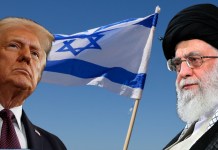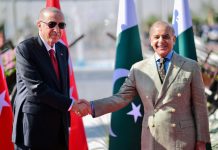As the India-China border dispute is being gradually resolved, Governments of both India and China have issued official statements on the disengagement process. Despite the peace initiatives, Chinese Experts say that they are uncertain for how long the India-China peace deal will hold.
India-China Peace Talks – Read The ‘Official Statements’ Of Indian & Chinese Govt On Disengagement
As per the editorial in Chinese state mouthpiece, Global Times (GT), it is still unclear how India’s rising nationalism affect the two countries. “Taking a step back does not represent a weak concession on the part of China – it is for the consideration of the big picture,” said Song Zhongping, a military expert and TV commentator.
He further said that some forces in India have long wanted to boycott “Made in China” products, but couldn’t find an excuse to do so. Thus, they are taking advantage of the tensions on the border, hyping the “China threat” theory and boycotting Chinese products.
Despite Chest Thumping, India Could Take Years To Reduce Economic Dependence On China – US Experts
Moreover, another expert interviewed by GT, Lan Jianxue, deputy director of the Department for Asia-Pacific Studies at the China Institute of International Studies, states that New Delhi has made efforts to expand its divergence with Beijing.
It has upgraded border confrontations and is now trying to antagonize other dimensions of bilateral relations which work as a block to ease the tense border disputes.
As reported earlier by EurAsian Times, India and China saw the worst face off in the last 45 years on the border. After the troops of the two neighbouring countries clashed on the LAC in the Galwan valley leaving 20 Indian troops dead and an unknown number of Chinese casualties.
The efforts to defuse border tensions were somewhat resolved after a telephonic conversation between India’s National Security Advisor Ajit Doval and China’s Foreign Minister Wang Yi.
Jianxue also stated that the Indian “nationalistic forces” are trying to influence the military and economy against China. However, undermining India’s military and industrial capabilities, he said that India doesn’t “have the ability to actually confront China”.
Zhongping takes the criticism a step further saying that the rising nationalism has led to building “blind confidence in the military” resulting in countries supplying India with various weapons. “But this is limited to selling weapons, not technology transfer. These gestures won’t help India improve its military capabilities,” he said.
Russia Pressurized China To Release Indian Soldiers, End Border Conflict With India
On one hand, Zhongping’s words display provocation even when the diplomacy and military channels are working to disengage on the LAC, Jianxue’s words reflect more subtlety and confidence. He states that instead of launching a war of words with India, China should maintain peace along the LAC.
“China should also agree to total de-escalation for peace and tranquillity along the LAC,” he said. “In the meantime, China has to stay vigilant and prepare for the potential reckless attacks from the Indian side, especially after reports that India has changed its rules of engagement in the border area,” he added.
Jianxue’s concluded saying that both countries have always managed to resolve these incidents through dialogue on the ground as well as through diplomatic channels. “This shows that India and China are both mature countries, capable of peacefully resolving our differences,” he said.




